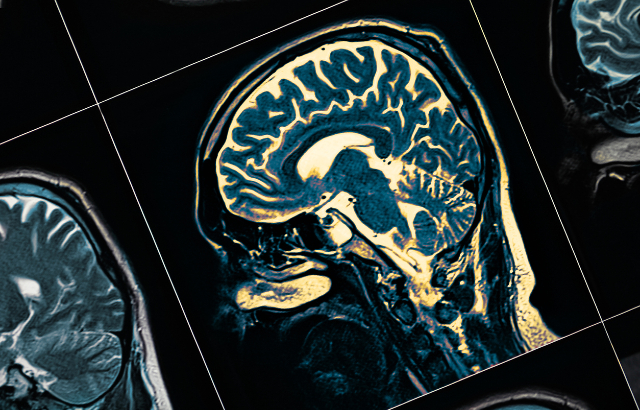Molecule found in seafood plays role in protecting and improving cognitive function, researchers find
A molecule found in high quantities in fish and other seafood could play a role in protecting and improving cognitive function in the brain, a new study suggests.

MRI Scan. Credit:iStock.com
Research at Nottingham Trent University and Queen Mary University of London investigated the role of trimethylamine N-oxide (TMAO) a molecule that is present in people’s diets and produced by the body during the digestion of fish.
Alzheimer’s Research UK funded the study, which adds to a growing body of work aiming to understand and demonstrate how bacteria in the gut and the molecules they interact with influence human health and disease.
TMAO and the blood-brain barrier
As foods containing TMAO are ingested, the molecule is broken down by bacteria in the gut. The breakdown product is taken up into the bloodstream and converted back to TMAO, which interacts with organs throughout the body.
Importantly, the brain’s circulatory and vascular system is exposed to TMAO, which interacts directly with the ‘blood-brain barrier’. This barrier works to prevent potentially harmful toxins in the body from reaching the brain.
As people become older the blood-brain barrier becomes ‘leaky’ and more easily penetrated by these toxins. The researchers have found, however, that TMAO makes the blood-brain barrier less leaky.
They found that the long-term presence of TMAO in the diet positively influenced both blood-brain barrier integrity and cognition in mice – preventing recognition memory impairments – compared to the absence of the molecule.
Big step forward
The team says that it is the first such demonstration of a direct interaction of microbe-derived metabolites with the blood-brain barrier and its protective function. They argue that the work has implications for dietary interventions in humans that target the gut-brain connection to potentially improve cognitive function.
Professor Lesley Hoyles, a microbiologist in Nottingham Trent University’s School of Science and Technology, said:“This work is a big step forward in better understanding how our diet could positively influence cognitive function and healthy ageing,”
“Microbiota-produced metabolites come from gut bacteria and have numerous effects on our bodies. We have demonstrated that TMAO – a bacterial metabolite associated with the human gut microbiome and found in high quantities in fish and seafood – has a direct and beneficial interaction with the blood-brain barrier and influences cognitive function.
“This opens up a range of new work exploring dietary interventions that connect the gut and brain.”
Lead author Dr Simon McArthur, from Queen Mary's Institute of Dentistry, said: “We know that damage to the brain’s blood vessels is a feature of many neurological diseases, including stroke and dementia. By identifying the gut bacteria as able to modify brain blood vessel integrity, our findings open up exciting new avenues for protective intervention by manipulating the diet.
“We have long known that eating fish is good for your brain – now we can add the gut bacteria as a fresh aspect to this old adage.”
Dr Rosa Sancho, Head of Research at Alzheimer’s Research UK, said: “The blood-brain barrier is an important line of defence against damage and infection. During diseases like Alzheimer’s, the blood-brain barrier can break down, leaving the brain susceptible to damage.
“In this research, scientists highlighted that a molecule found in high quantities in fish, and which is produced in the gut, could impact the leakiness of the blood-brain barrier. We know that diet forms an important part of a healthy lifestyle and investigating the properties of molecules like TMAO warrants further research.
“This work adds to the number of discoveries our researchers have made. Only with further investment into dementia research will we be able to further investigate findings like these and make the breakthroughs people living with the condition need.”
The study is published in the journal Microbiome.
More information
- Research publication: 'Regulation of blood–brain barrier integrity by microbiome-associated methylamines and cognition by trimethylamine N-oxide' Hoyles et al. Microbiome (2021) DOI:10.1186/s40168-021-01181-z
Related items

4 July 2025

1 July 2025
For media information, contact:
Sophie McLachlanFaculty Communications Manager (Science and Engineering)
email: sophie.mclachlan@qmul.ac.uk
